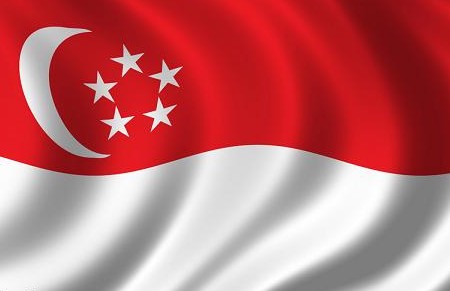Singapore – Singapore on Friday moved to further relax coronavirus travel restrictions for incoming travellers from “low-risk” territories such as mainland China, Taiwan and Malaysia, with senior officials adding that the city state was moving towards allowing full fledged travel to Brunei and New Zealand.
The move came as the government said it would look for ways to revive the tourism industry, one of the hardest-hit sectors, as the trade reliant economy heads for a record full-year contraction
Education minister Lawrence Wong, who co-chairs a multi-ministerial task force that deals with the coronavirus, said travellers from “low-risk” regions – which also include
Vietnam, Macau and Australia (excluding the state of Victoria) – would now serve a seven-day stay-home notice, rather than the 14-days required for all other travellers. They would still be required to take a coronavirus test before the end of their isolation period, he said.
Travel restrictions for Brunei and New Zealand would be relaxed even further.
“For travellers who have been in Brunei and New Zealand in the last 14 days prior to entry, when they arrive in Singapore, they will undergo a test at the airport, and there is no need to serve a stay-home notice,” said Wong.
Even with the easing of restrictions, all travellers arriving in Singapore must continue to obtain pre-approval to land, apart from those from Brunei and New Zealand, who may arrive on tourist visas.
Brunei has reported only about 140 infections to date. New Zealand, with 1,665 cases, has in recent days witnessed a second wave of infections.
Before travelling to Singapore, visitors from the two countries would be required to apply for an air travel pass between seven and 30 days before their intended date of entry into Singapore, the health ministry said, with applications to start on September 1.
The travel advisory for Singaporeans would be updated to allow general travel from Singapore to Brunei and New Zealand. However, authorities stressed Singaporeans and residents of Singapore were advised to defer all forms of travel overseas apart from to study or for official business.
Wong said the current agreements with Brunei and New Zealand were not “reciprocal”, but discussions for such an arrangement were under way.
Transport minister Ong Ye Kung had previously hinted that Singapore could consider reciprocal travel lanes for tourists from nations where the coronavirus situation was similar to or better than in Singapore, in a bid to boost passenger traffic.
In a doorstop interview on Friday he noted Brunei and New Zealand had “controlled the epidemic situation very well” and said the move would help kick-start the aviation industry.
“Singapore is a small, open, globalised economy. The aviation sector, Changi Airport and Singapore Airlines, do not concern just the aviation sector, but are linked to the whole economy,” he said. “We need to really start to take steps to open up in a safe manner that can revive Changi Airport and resuscitate the aviation sector.”
NEED FOR CAUTION
Even as the city state looks to gradually ease restrictions, health minister Gan Kim Yong on Friday emphasised the need for vigilance. “I want to caution that this gradual resumption [of activities] does not signal that things can go back to pre-Covid-19 days. When we need to, we will continue to tighten requirements,” he said.
The city state has more than 56,000 coronavirus cases, most of them among low-wage migrant workers living in dormitories. Infections within its local community have come down significantly, clocking fewer than 100 cases per day in recent days.
The Friday announcement came after Singapore hammered out several travel agreements with countries in the region. Singapore first allowed essential business or official trips with six provinces in China – Shanghai, Tianjin, Chongqing, Guangdong, Jiangsu and Zhejiang – in June under its “fast lane” agreement.
It later resumed travel with neighbouring Malaysia, permitting long-term pass holders to commute, with a cap of 400 business travellers per week. Last week, authorities said travel restrictions with Japan would be eased from September, following Japanese Foreign Minister Toshimitsu Motegi’s visit. (SCMP)

